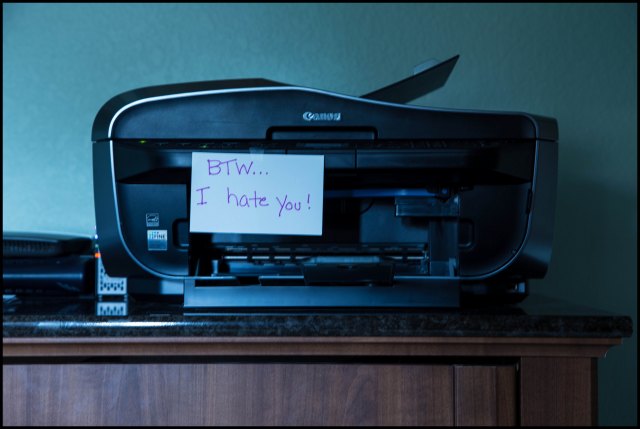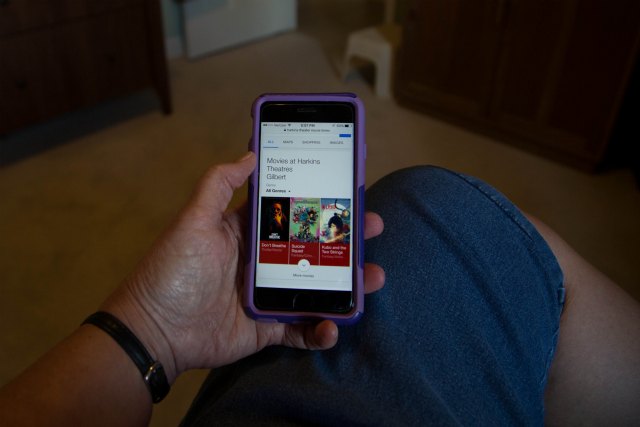Our home printer has been dying a slow and very painful death over the past year and a half. My sweet hubby has nursed it along cleaning the heads, shaking the ink cartridges, and the like for months. But its days are numbered, I fear, as it makes long, ugly, black streaks on nearly everything that comes out of it.
We are looking for a replacement printer (unfortunately, it's not cost-effective to repair them) but until we decide definitively on one, I am stuck with the old printer. And I hate it.
It was with some amusement I read a recent article in the Wall Street Journal (August 26, 2016) that confirmed what I suspected. MANY people truly hate their printers for all kinds of malfunctioning/mechanical reasons.
But what I didn't suspect was that, motivated by the 1999 movie, "Office Space," they are publicly smashing them to smithereens! Some companies have planned employee retreats around printer pummeling. Or have contests where the winner gets to bash one of the evil company printers with a baseball bat. And "rage rooms" (aka "anger rooms") across the country report that printers are one of the most in-demand items.
So I wonder... why is there such an over-the-top anger with printers? Why not smart phones or laptops? Maybe it's because our printer is the last in line. We become annoyed when the app on our smartphone doesn't work the way it should or the way we want it to. So we move on to our laptop and then become frustrated when pages are slow to download or we lose internet connectivity. We finally get the document finished or the coupon ready to print and now the printer isn't cooperating. We just want to be finished with whatever it is we're working on. We blow past annoyed and frustrated landing on angry.
It's funny how quickly we forget how it used to be when we had to go to a printing place to make copies. And creating our own documents at home to print at home was just a dream. It seems the more "convenient" life gets, the less content we are.
Hmmm....



